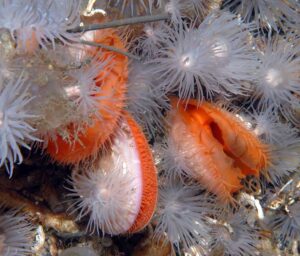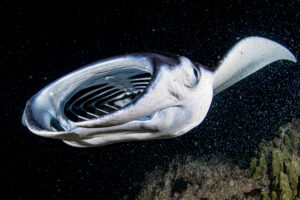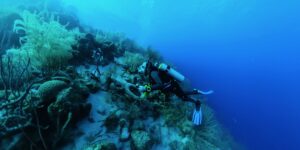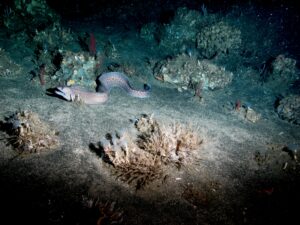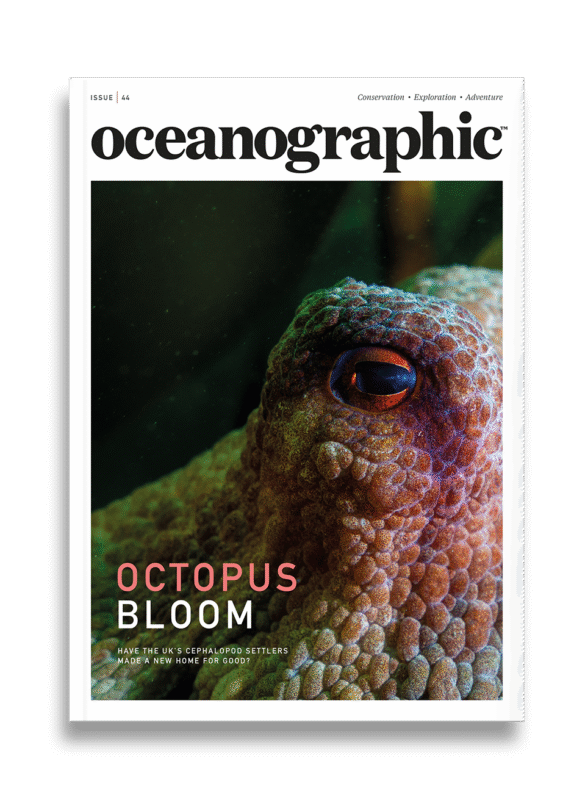The UK to collaborate on marine protection with Saudi Arabia
Saudi Arabia's National Center for Wildlife (NCW) has signed a Memorandum of Understanding (MoU) with the UK’s National Oceanography Centre (NOC) to establish a collaborative framework for cooperation on marine biodiversity projects.
Collaboration is key – this statement especially rings true in the conservation space where successful projects often require collaboration across international borders. Not only can collaboration between different countries and organisations reduce costs, it makes achieving conservation targets more likely as animals and their migratory routes often reach across borders.
To foster collaboration between the UK and Saudi Arabia, a country bordering the biodiverse Red Sea, Saudi Arabia’s National Center for Wildlife (NCW), which was established in 2019 to conserve wildlife and biodiversity, has now signed a Memorandum of Understanding (MoU) with the UK’s National Oceanography Centre (NOC), a leading marine science and technology institution in the UK. The Memorandum seeks to establish a collaborative framework for cooperation on marine biodiversity projects and hopes to bring joint efforts in marine biodiversity monitoring, the management of Marine Protected Areas, and the exchange of scientific visits to enhance knowledge and biodiversity conservation to life.
Under this MoU, signed in Riyadh, both parties will collaborate on marine biodiversity projects aimed at sustaining marine habitats. The cooperation includes monitoring the health and populations of sharks, whales, dolphins, turtles, dugongs, mangroves, seagrasses, and associated species.
Professor Alex Rogers, deputy director of strategic science programs and partnerships at NOC, commented: “Global collaboration is essential to achieve NOC’s vision of gaining a deeper knowledge of the ocean to help every living thing on our planet flourish. We welcome this initiation of an important collaboration with Saudi Arabia through the National Centre for Wildlife.”
He continued: “The seas around Saudi Arabia host a wealth of biodiversity, from rich tropical coral reefs and seagrass beds to deep-sea ecosystems that have barely been explored. The collaboration between NCW and NOC will generate critical data on the distribution of species and their ecosystem functioning.”
It is hoped that the collected data will then help Saudi Arabia’s government conserve its critical biodiversity, while informing the sustainable growth of the country’s blue economy.
“It will also provide opportunities for early career scientists to train and become familiar with modern approaches to surveying and monitoring biodiversity. We look forward to developing new projects that build on and expand the expertise of both of our institutions in ocean science and effective management,” added Professor Rogers.
The scope of the agreement will further extend to assessing the health of benthic organisms which live on the ocean floor, evaluating the impact of human activities on marine habitats, and the effective deployment of advanced technologies to monitor activities potentially harmful to marine and coastal wildlife.


A key aspect of the new collaboration is the implementation of optimal management practices for Marine Protected Areas and their habitats, which will be achieved through a series of training workshops centred on the protection and conservation of marine and coastal wildlife and their habitats.
Dr. Mohammed Qurban, CEO of NCW, commented: “This memorandum lays the foundation for impactful collaboration with the UK’s National Oceanography Centre on marine biodiversity projects and the management of protected areas. It will significantly aid us in achieving our goals of protecting wildlife, preserving habitats, and restoring environmental balance.”
Dr. Qurban added: “We recognise the importance of international cooperation and leveraging collective experience and best practice to enhance wildlife conservation. This agreement underscores the significance of exchanging expertise and collaborative knowledge-sharing to build an integrated approach at the national, regional, and international levels to achieve our strategic objectives. These objectives align with NCW’s vision of attaining ‘thriving and sustainable wildlife, biodiversity, and habitats,’ in harmony with the goals of Saudi Vision 2030, the National Environment Strategy, and the Saudi Green Initiative, showcasing the Kingdom’s global leadership in environmental development.”


"*" indicates required fields
Printed editions
Current issue
Back issues
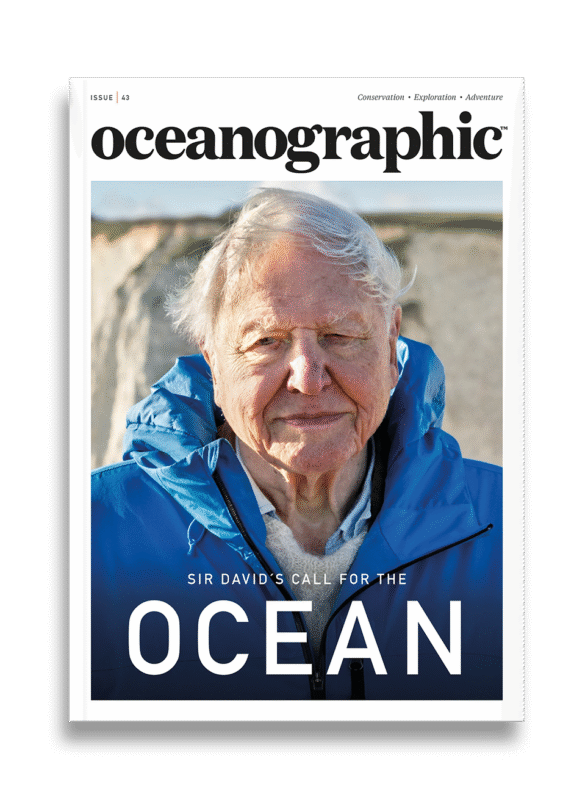
Back Issues
Issue 43 Sir David Attenborough’s ‘Ocean’

Back Issues
Issue 41 Holdfast to the canopy
Enjoy so much more from Oceanographic Magazine by becoming a subscriber.
A range of subscription options are available.

